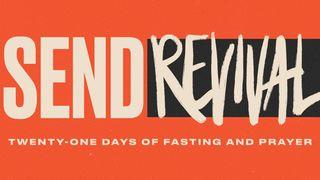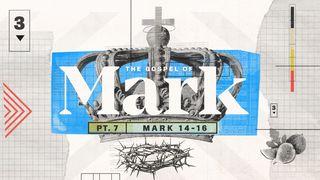In the Company of ChristSample

A New Beginning
The religious leaders want to arrest Jesus, but they need an insider close enough to Jesus to know his movements. Mark 14:10–11 tells us that this insider is Judas Iscariot, one of the twelve who had shared so much life with him.
As Judas is watching for an opportunity, the disciples make plans to prepare the Passover meal. Jesus cryptically tells two of the disciples to look for a man carrying a water jar who will show them the place to prepare. I don’t think Jesus wants Judas to know where they’re having dinner that night. I believe that if Judas knew, Jesus could have been arrested there, and I think Jesus wants every last hour that he can get with his disciples.
During the Passover meal, Jesus flips the script. He takes the bread of the Passover and says it represents his body that will be broken for us (see Mark 14:22 and Luke 22:19). He also takes the Passover cup of wine and says it represents his blood poured out for us (see Mark 14:23–24 and Luke 22:20). Jesus also drops the bomb that one of them will betray him and predicts that all of them will fall away and scatter.
When Jesus arrives at the garden of Gethsemane, he’s vulnerable and overwhelmed. He prays to his Father, “Take this cup from me. Yet not what I will, but what you will” (see Mark 14:36). Jesus prays. The disciples sleep. Judas arrives. Jesus is arrested. The disciples run. The trial of Jesus unfolds in two phases: the Jewish trial and the Roman trial. When Caiaphas, the high priest, asks Jesus, “Are you the Messiah?” Jesus speaks up and says “I am.” (Mark 14:61–62 NIV). This is where the abuse begins—both physically and emotionally, and because the Jewish leaders did not have the legal authority to sentence someone to death, they turn to the Romans.
When Pilate hands Jesus over to be crucified, the Roman soldiers host a mock coronation, and when he is hung on the cross a sign hangs over Jesus’ head that reads, “THE KING OF THE JEWS” (see Mark 15:26). Then darkness falls and Jesus cries, “My God, my God, why have you forsaken me?” (Mark 15:34 NIV). He breathes his last, and it’s over. Jesus’ body is lowered from the cross, placed in a tomb, and he is gone.
Early Sunday morning some women arrive to anoint Jesus’ body and they see the stone rolled away from the tomb and a man dressed in white. He says, “Don’t be alarmed. He is risen!” (see Mark 16:6). Mark’s gospel ends with the resurrection story! It’s a new beginning.
An impression we should have from the last events of Jesus’ life is his experience of abandonment, betrayal, and desertion. He embraced the whole human experience. It’s also critical to remember that if you’ve come to know Jesus as your Savior and your Lord, what was done for you is far more significant in who you are than what has been done to you. Remember that the kingdom did not come in spite of the cross, but through the cross—through powerful weakness and redemptive suffering.
Respond
What does Jesus’ power over death tell us about his qualifications to be our Savior and King?
How are the crucifixion and the resurrection important parts of God’s plan to give us a new beginning?
How have you experienced suffering for Jesus’ sake? How does a relationship with Jesus allow you to experience a new beginning?
Scripture
About this Plan

This reading plan includes five daily devotions based on Jeff Manion’s study Mark: In the Company of Christ from the 40 Days Through the Book series. This study will explore how the gospel of Mark presents who Jesus is and what it means to be a follower of Jesus.
More
We would like to thank HarperCollins/Zondervan/Thomas Nelson for providing this plan. For more information, please visit: https://churchsource.com/pages/40-days-through-the-book









